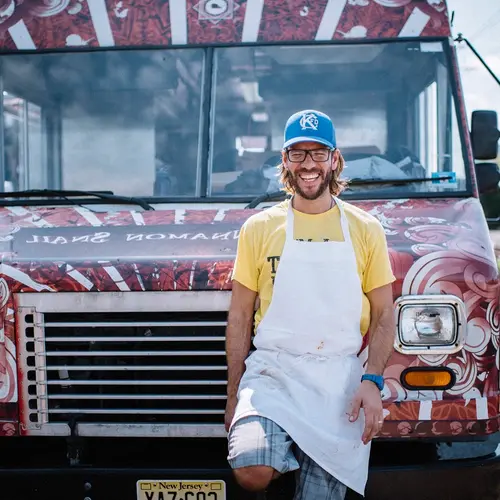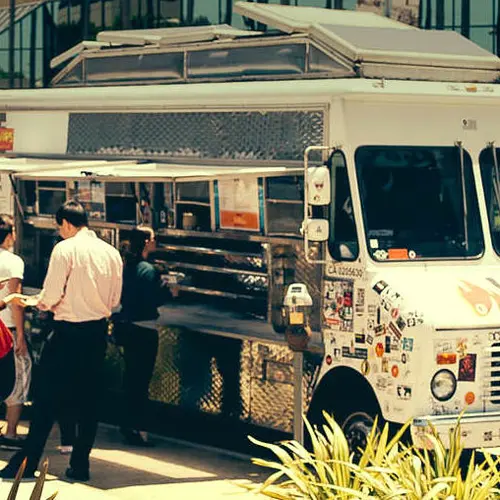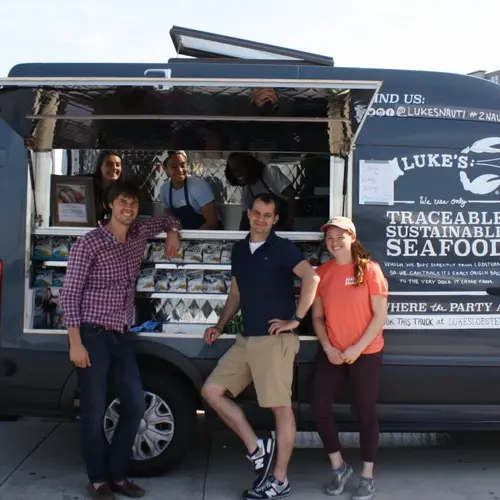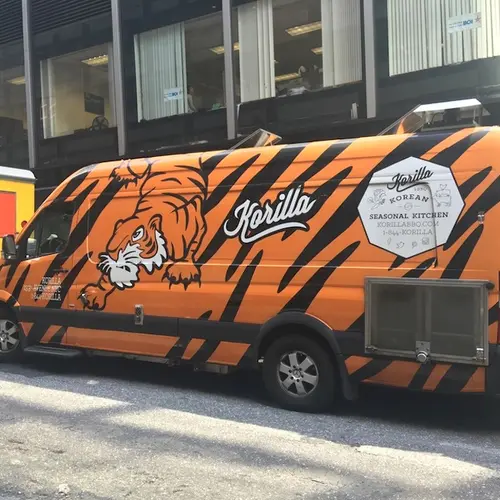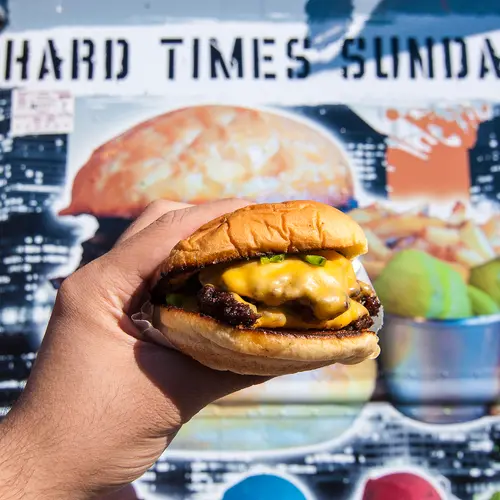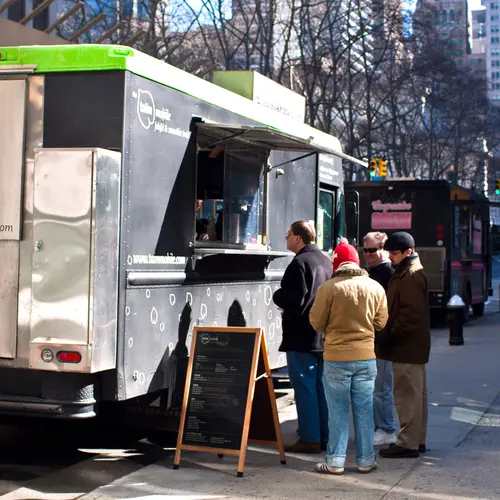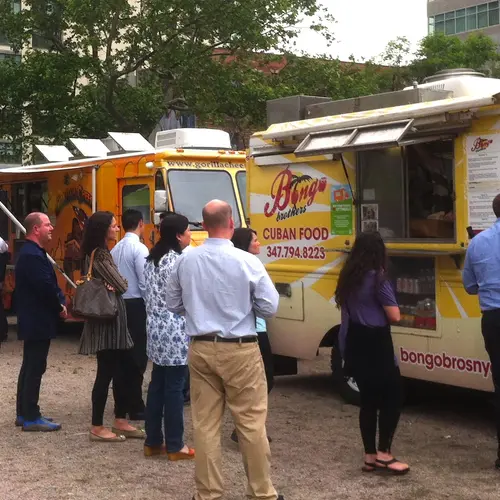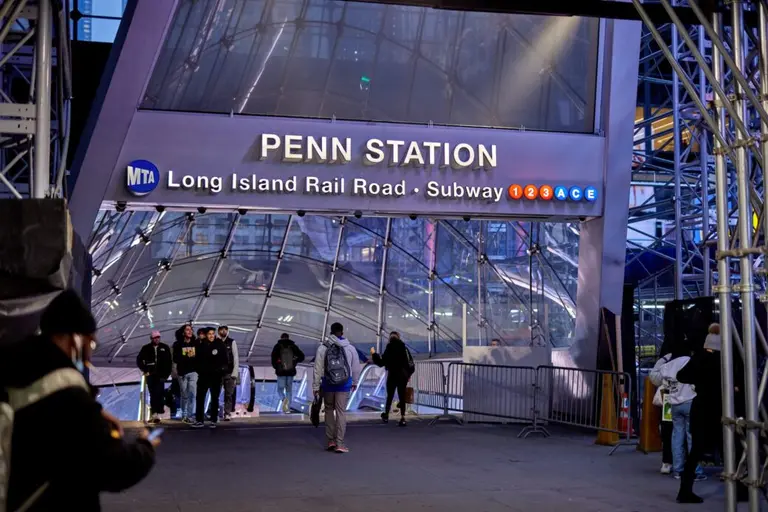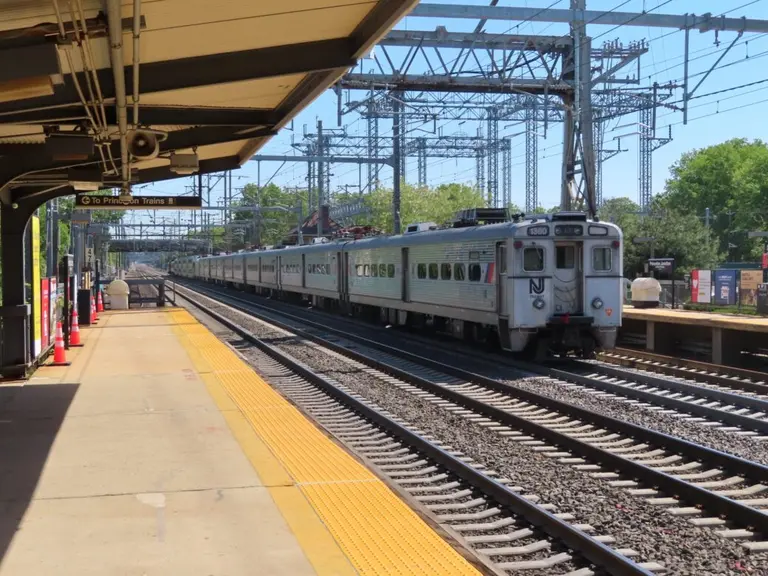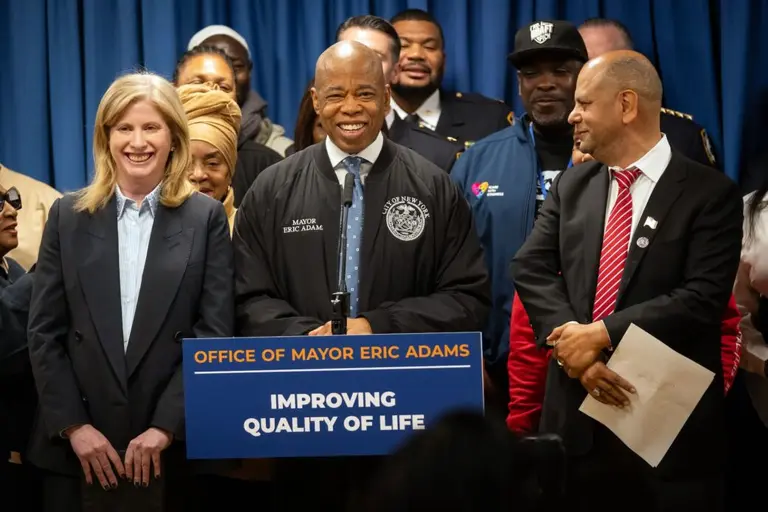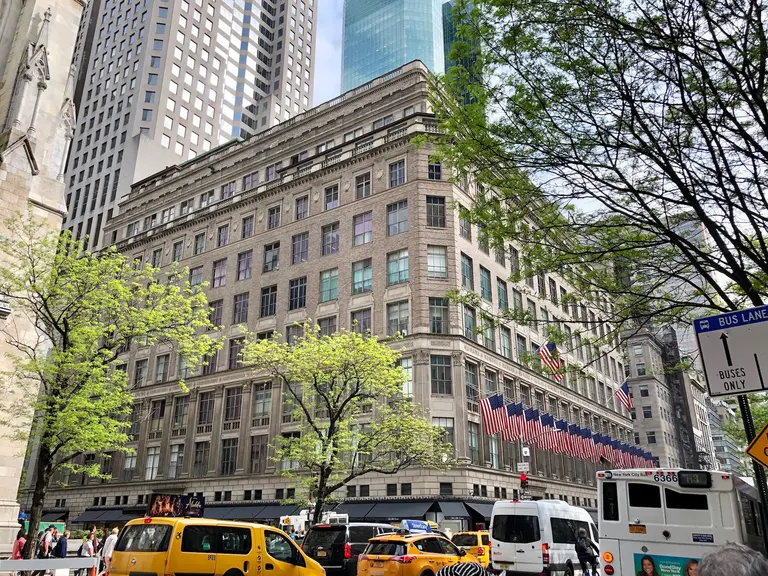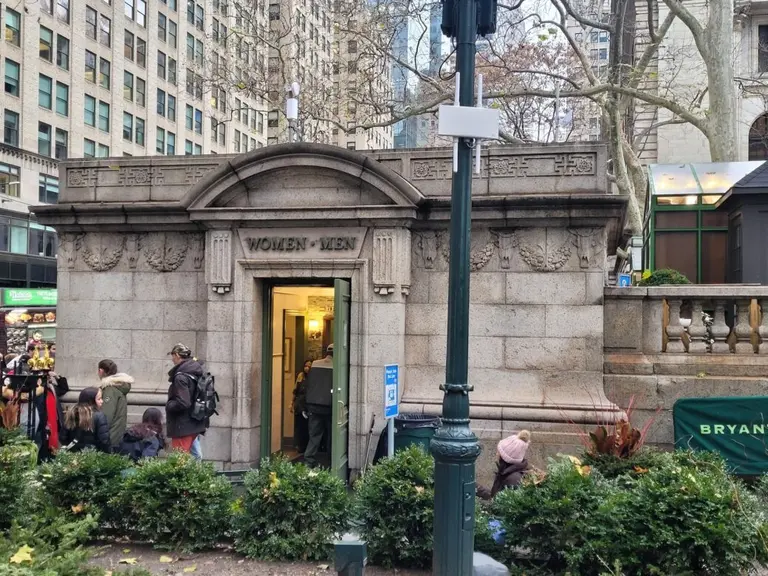The state of food trucks: Why owners are fed up with outdated regulations
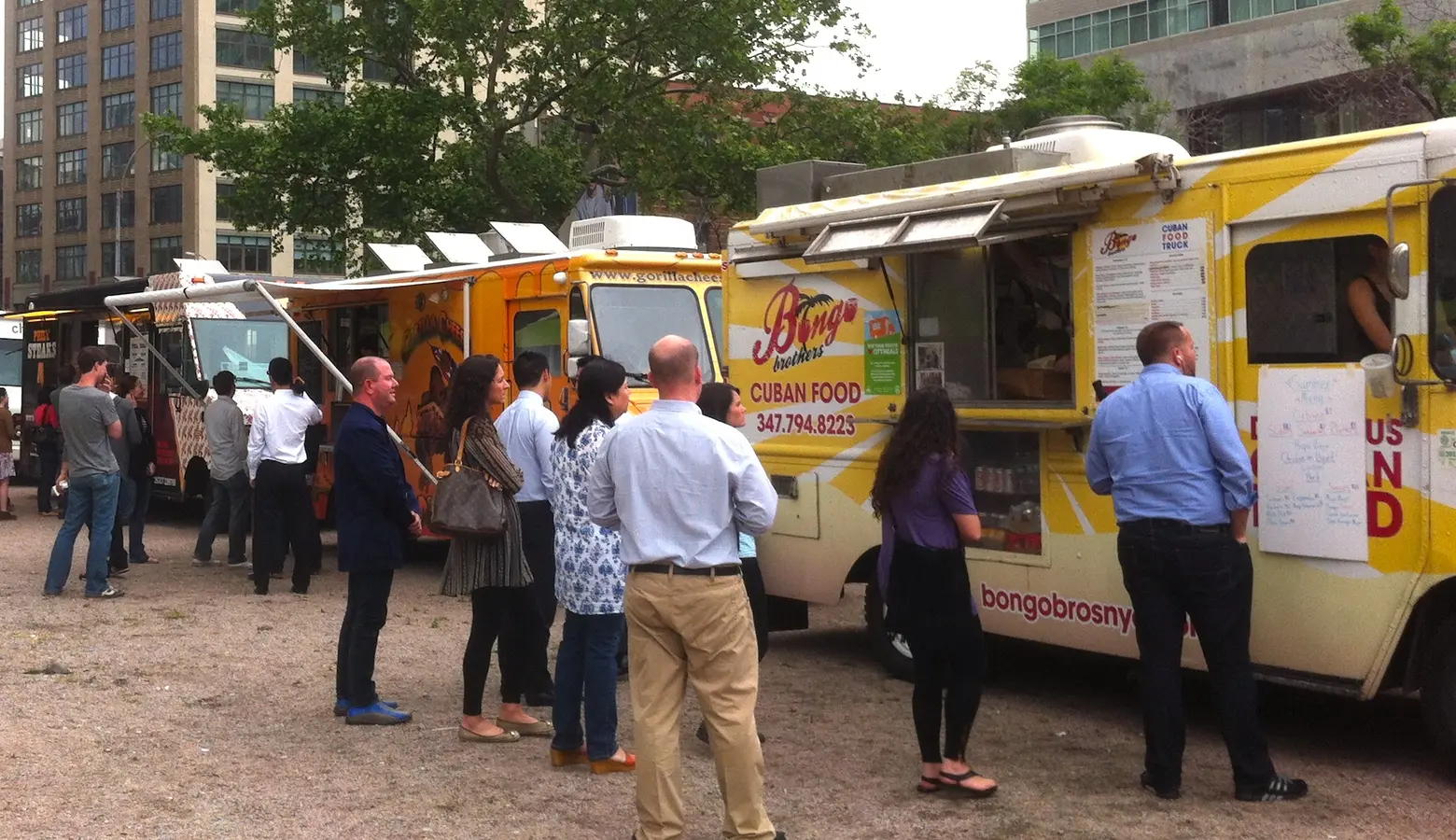
Photo via Wikimedia
According to a recent report by Food Truck Nation, New York City takes 9th out of the top places to run a food truck. The report ranks three categories: ease of obtaining permits and licenses, complying with restrictions and operating a food truck. And with a composite score of nine, NYC is falling behind other cities, specifically Portland, Denver and Orlando which take the top three spots, respectively. Based on the data, obtaining permits and licenses is what drags the city’s scores down, falling to spot 26. Some cities have many fewer barriers to entry. For example, Denver requires ten different procedures to obtain a license, whereas Boston has a whopping 32. Unsurprising, Denver has 594 food trucks in operation.
But Adam Sobel, the owner of Cinnamon Snail, the vegan food truck which is ranked as the top food truck in the New York City by The Daily Meal, has stopped running its food truck business on the streets of New York. Sobel only uses his food trucks for special events a few days a week, like farmers markets, because he says that every food truck on the streets of New York is basically illegal.
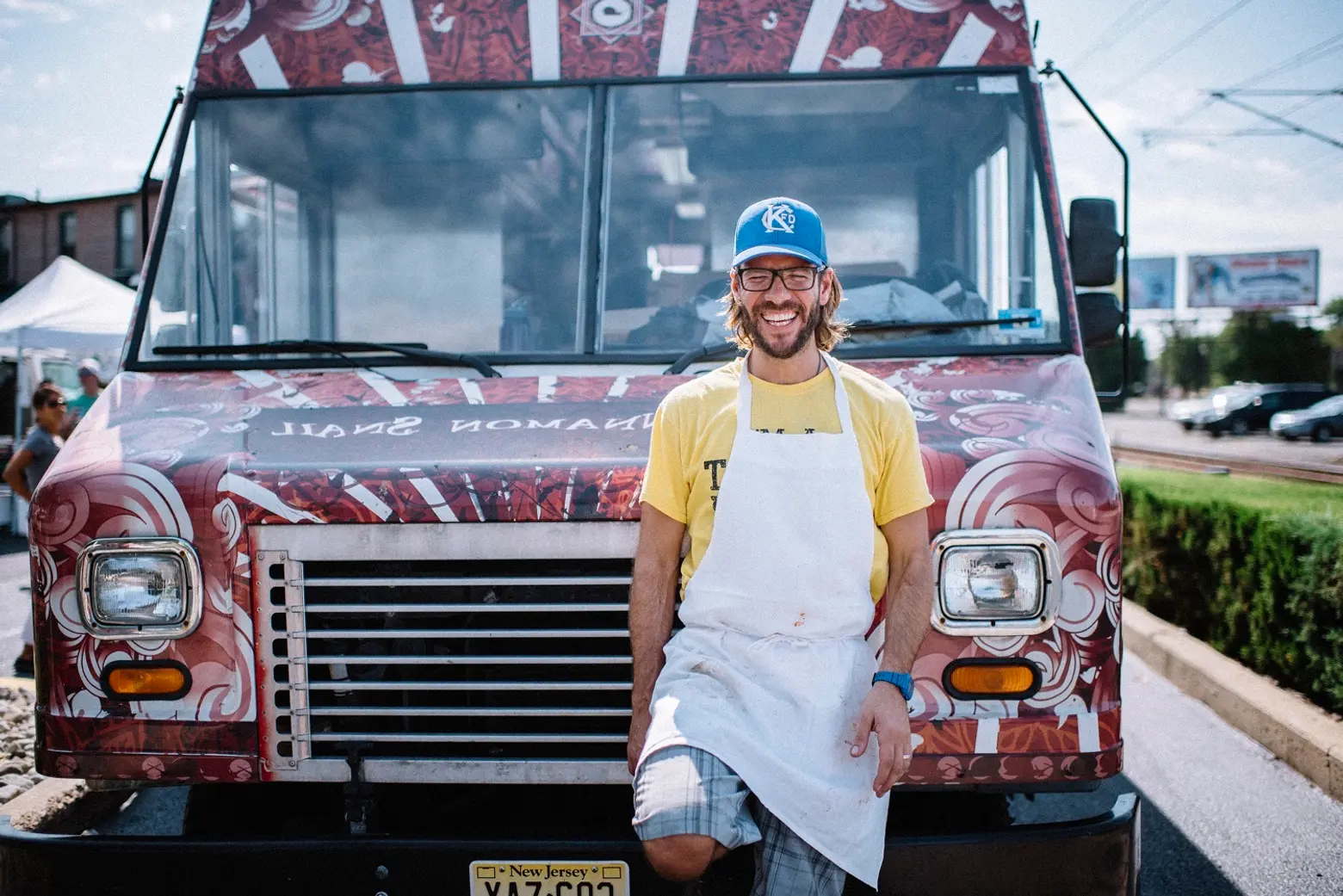
Cinnamon Snail’s food truck manager, Anthony Spino; photo via Cinnamon Snail
Sobel blames the archaic laws of New York City which greatly limit where food trucks can sell. “The top being you have to illegally rent a permit on the black market…with all the permits and all the other hoops you have to jump through, on any given day you can be shut down just because you’re selling food at a metered location,”Sobel told Forbes in 2016, referring to the biggest, non-operational challenge of owning a food truck.
“The entire city is now metered. We ended up getting used to getting a ticket every day. It could be a $160 fine, a $1,000 fine or $1,000 fine and you’re getting shut down for the entire day. It ended up being really difficult to make money in the end.”
In the 1980s, the city capped the total number of carts and trucks at 3,000, but allowed this number to increase to 4,000 for summer population influxes. People or businesses own food truck permits. Although the permits cost $200, those permit holders charge up to $25,000 for a two year period to lease their certificates.
According to Eater: “New York is home to as many as 12,000 food vendors, even though only a few thousand permits exist.” Out of the 12,000 vendors, there are only 5,100 valid food vendor permits currently allotted by the city’s Department of Health.
Sobel would still love to sell through his food truck. “If the city changed the way they regulate food trucks, I’d be back and having trucks on the street in no time,” Sobel said. “I just don’t want to break the law, I just want to make yummy food that doesn’t hurt animals.”
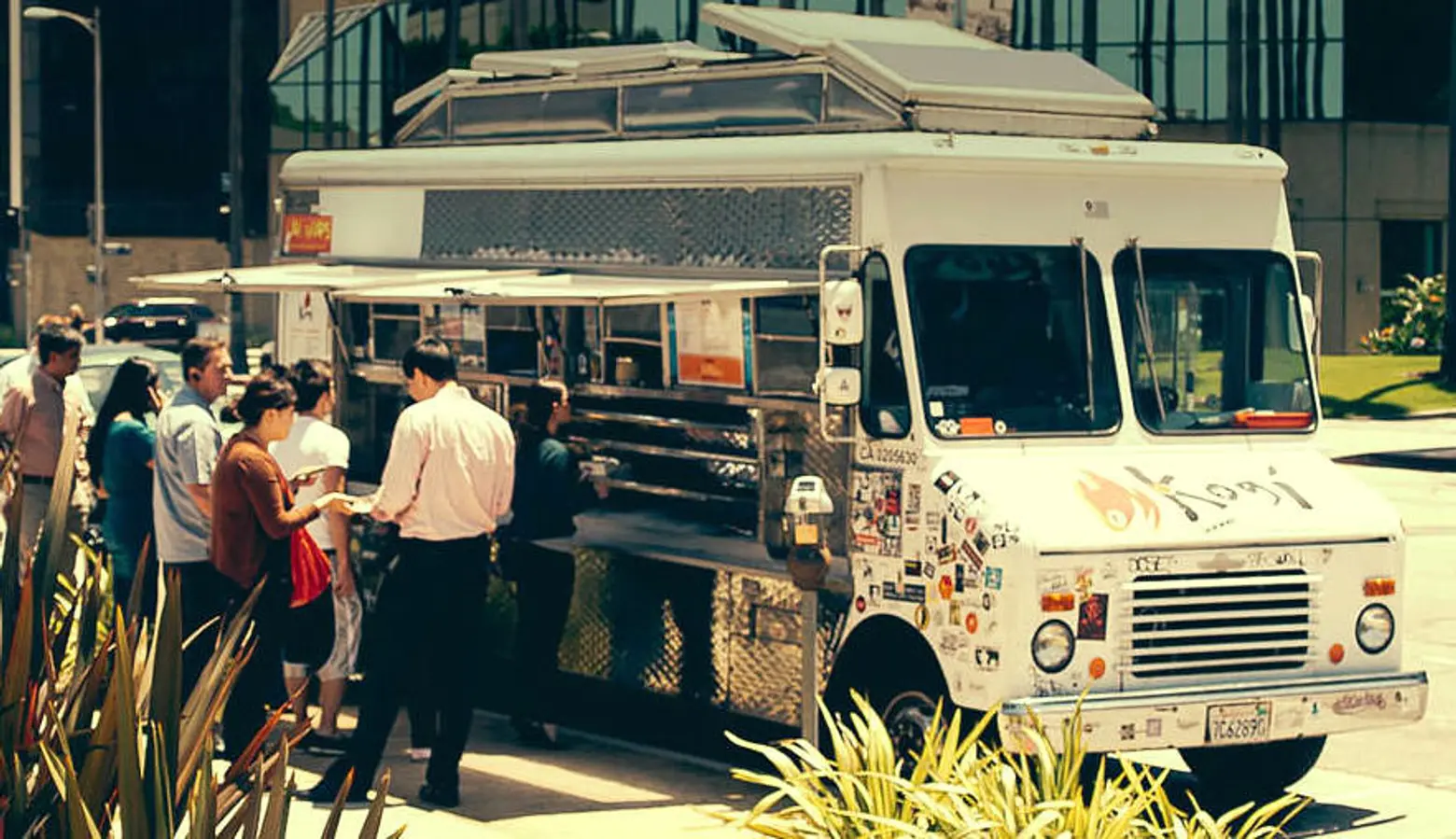
Photo via Kogi Korean BBQ
History of food trucks
The history of the modern food truck started in Los Angeles in 2008, with Korean-style meat Mexican tacos from the brainchild of Mark Manguera and Caroline Shin, creators of Kogi Korean BBQ with chef Roy Choi. They parked their truck outside nightclubs in the middle of the night, satisfied many hungry, drunk club goers and ended up starting a new food craze. By the end of their first year, they made over $2 million in sales, a then unheard-of figure. The food truck industry has grown at nearly 8 percent every year since 2011, topping $2.7 billion in revenue in 2017. In 2016, there were an estimated 3,700 food trucks on the streets of American cities, creating more than than 13,000 jobs.

Regulations on food truck set-up via NYC Health Department
Food truck regulations
Food trucks and mobile vending carts face many regulations created by the departments of Health, Sanitation, Transportation and Consumer Affairs. Unfortunately, it seems these rules are erratically enforced across the city, never a popular strategy. City Councilman Dan Garodnick told the New York Times, “it’s nearly impossible (even if you fill out the right paperwork) to operate a truck without breaking some law. Trucks can’t sell food if they’re parked in a metered space . . . or if they’re within 200 feet of a school . . . or within 500 feet of a public market . . . and so on.”
The varying interests involved exacerbate the struggle. Some brick and mortar shops do not want food trucks parked in front of their establishments, potentially taking away business. There is the city, which must regulate food for health reasons but also sees food trucks as sources of revenue through fines. And the food truck owners themselves who simply want to sell food and not pay large portions of the daily revenues on tickets.
A report by John C. Jones for the Graduate Association of Food Studies confirmed that most food truck owners come up against vending laws that were designed decades ago and severely restrict their business operations. Jones calls requirements from New York City’s regulatory agencies “both draconian and overly burdensome.” He adds: “Additionally, analysis suggests several factors contribute to an informal regulatory framework, which reinforces the formal governmental regulation.”
The New York City Council has proposed the Street Vending Modernization Act (“SVMA”) to expand the number of available permits to 8,000 by the year 2023. Only time will tell.
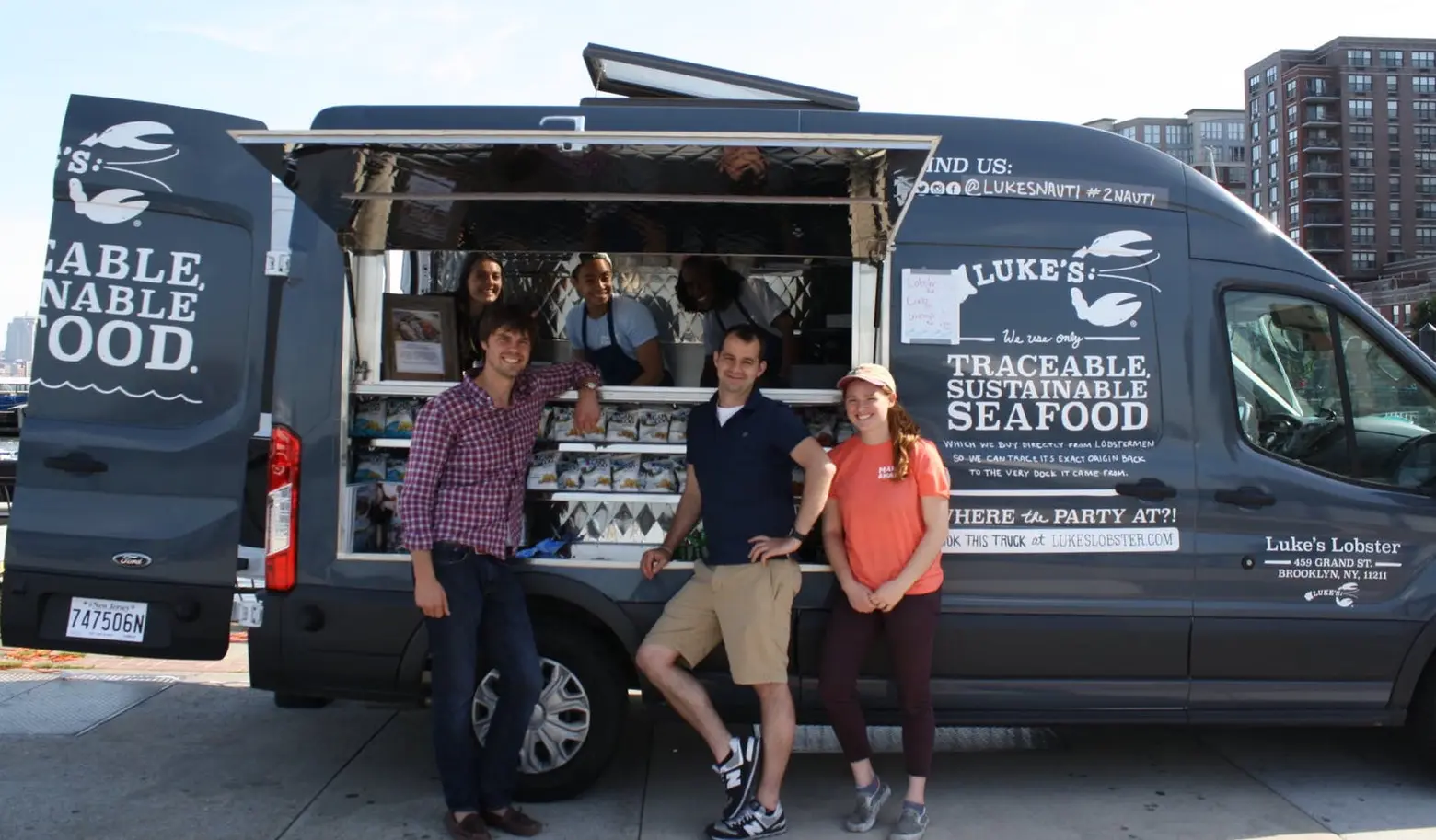
Photo via Luke’s Lobster
NYC food trucks to taste test
With all of that in consideration, it is actually quite impressive New York scores as high as it does. The Daily Meal has ranked food trucks since 2012 and in 2017, six New York food trucks made the list of “101 Best Food Trucks in America.”
Despite coming in as the top food truck in the city (and #5 in the nation), Cinnamon Snail has stopped selling food on street corners an has started focusing its efforts on their brick and mortar store, located in Penn Station’s food hall, The Pennsy. Cinnamon Snail is now reserving the truck for special events instead, like farmers’ markets.
But the Daily Meal says, it’s “absolutely the most deserving truck for this slot. Not only does TCS serve high-quality food, it checks all the other boxes, too.” The article highlights the red curry grilled tofu on a grilled pretzel bun, the smoked sage seitan burger with a sage seitan sausage baked ziti, marinated kale, smoked chili coconut bacon, and roasted garlic aïoli and the many gluten-free options. If you ever see a Cinnamon Snail truck at your next farmers market, check out some of its delicious vegan food.
At #13, Luke’s Lobster serves chilled lobster served in a toasted, buttered split-top bun “with a swipe of mayo, a sprinkle of lemon butter, and a dash of our secret spices.” At #23, Taim Mobile is known for its falafels, “which are smaller in size than the falafel balls you’re used to, but have double the flavor and crunch.”
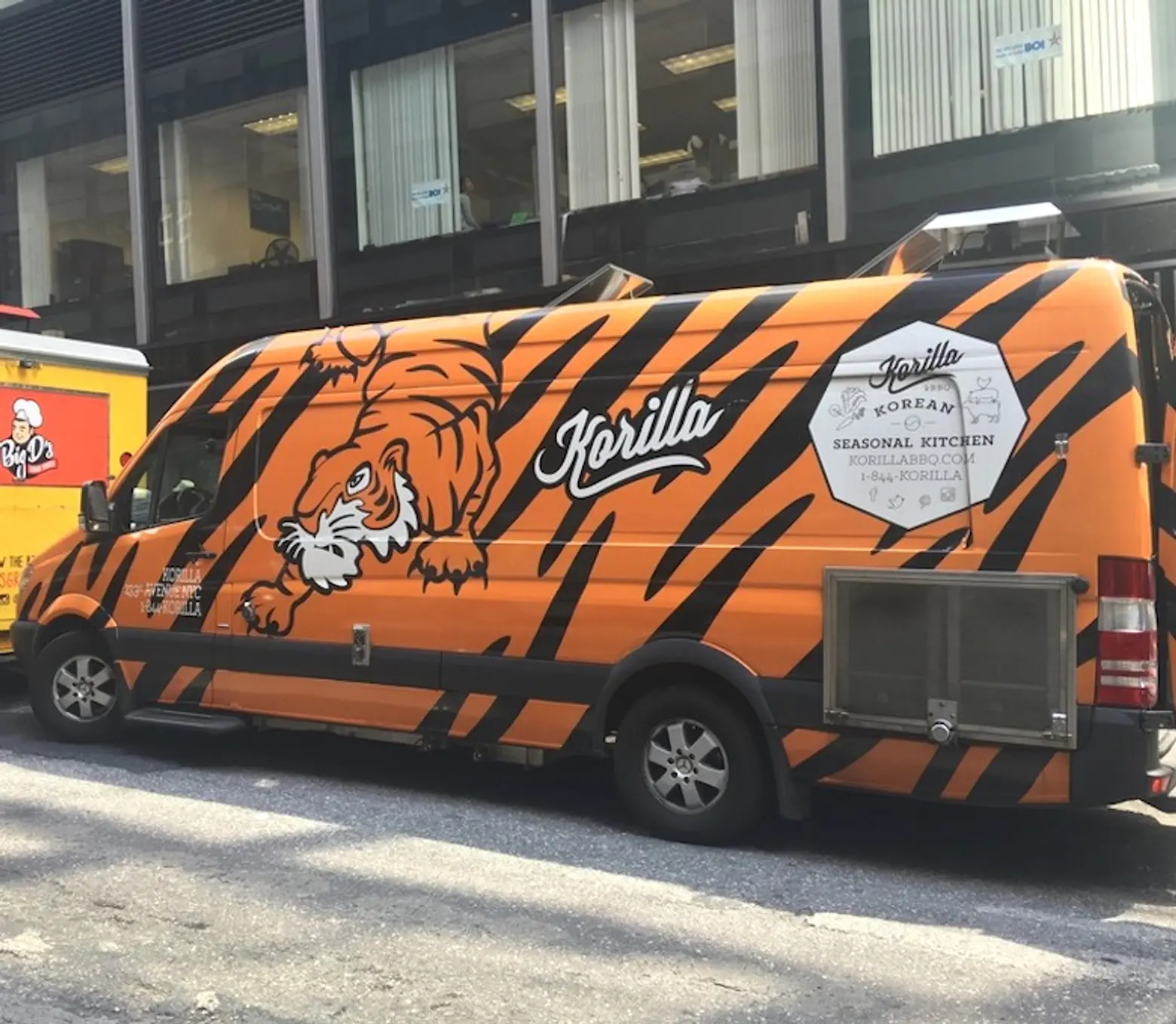
Photo via the New York Food Truck Association
Korilla BBQ comes in at #40, with a burrito or bowl and tons of choices. After being disqualified for adding their own money to their truck sales on the “The Great Food Truck Race,” Korilla BBQ still survives on the streets of Manhattan. They have also opened a brick and mortar restaurant on at 23 3rd Avenue. It serves Chipotle-style build-it-yourself wraps, rice bowls and salads blending Korean and Mexican flavors. You can find their food trucks by following them on Twitter.
With more lobster to offer and multiple trucks, Red Hook Lobster Pound, sells Connecticut or Maine style lobster rolls as well as shrimp rolls, a lobster BLT, lobster bisque, and New England shrimp and corn chowder. Also the Maine Root sodas (root beer, ginger brew, mandarin orange, blueberry, sarsaparilla, or lemon-lime) come highly recommended.
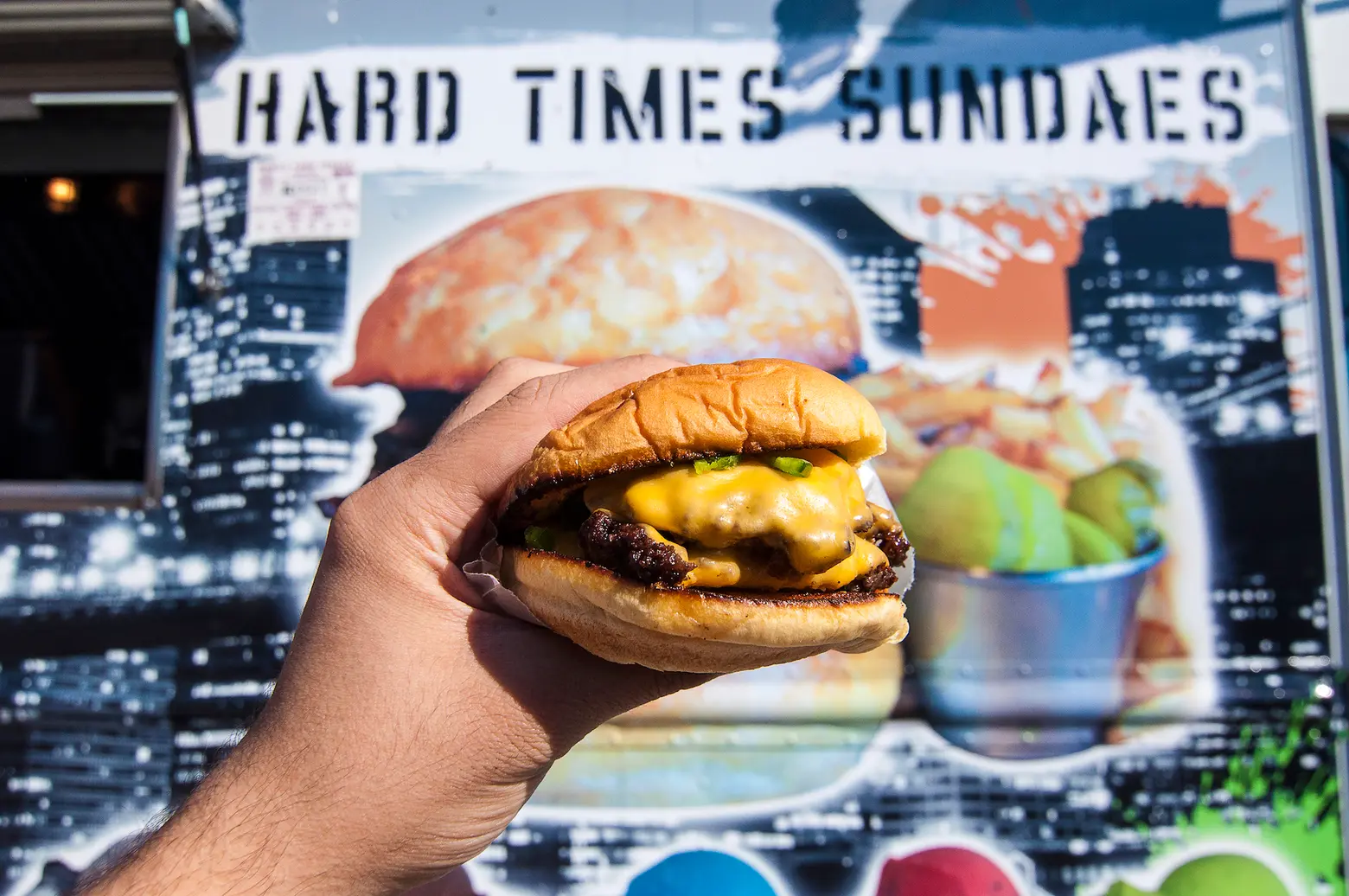
Photo via Hard Times Sundaes
And at #55, Hard Times Sundaes has the most confusing name of the (sun)day because they do not actually sundaes. Move over Big Macs, Hard Times serves single, double, or triple burgers with with American cheese and toppings and a deep fried Brooklyn-style hot dog.
In Union Square, on May 11th at noon, Drive Change, a food truck promoting social justice, specifically helping formerly incarcerated adults by training them and giving them jobs in the culinary arts, will serve food and have entertainment promoting their truck and cause.
Perhaps the rapid proliferation of food halls in New York City will give fed up food truck owners a friendlier outlet for their selling their food, with the added benefit of customers always being able to find you at all times.
RELATED:

